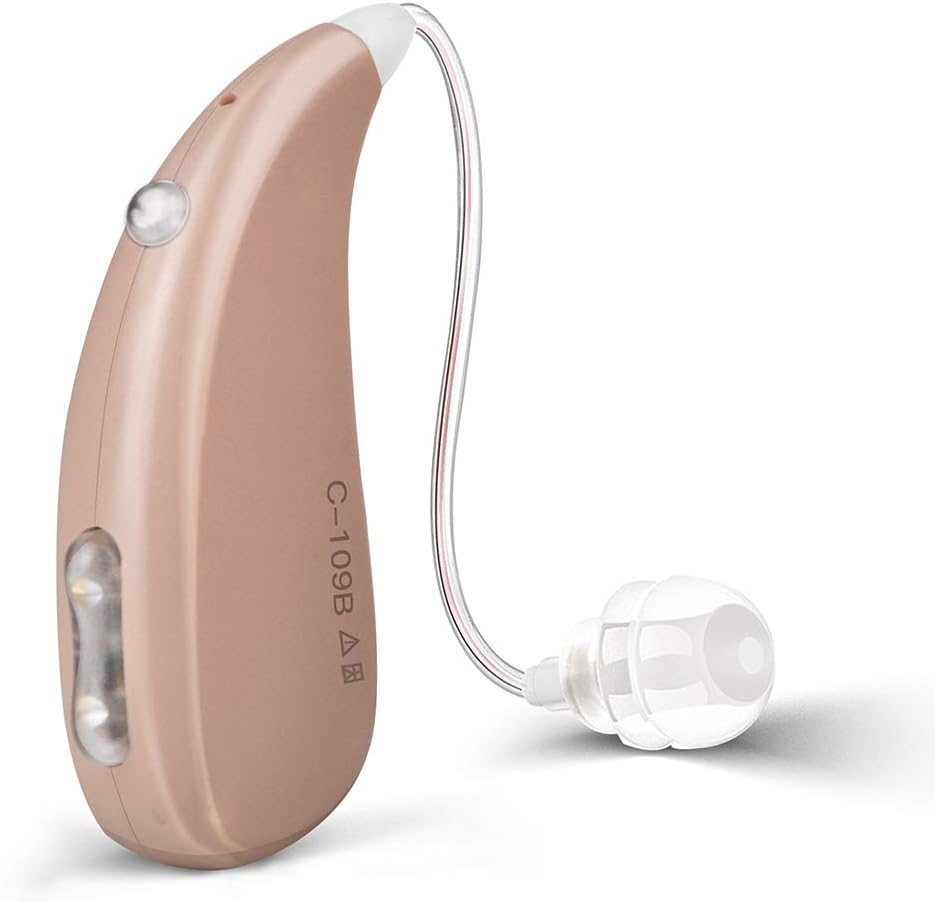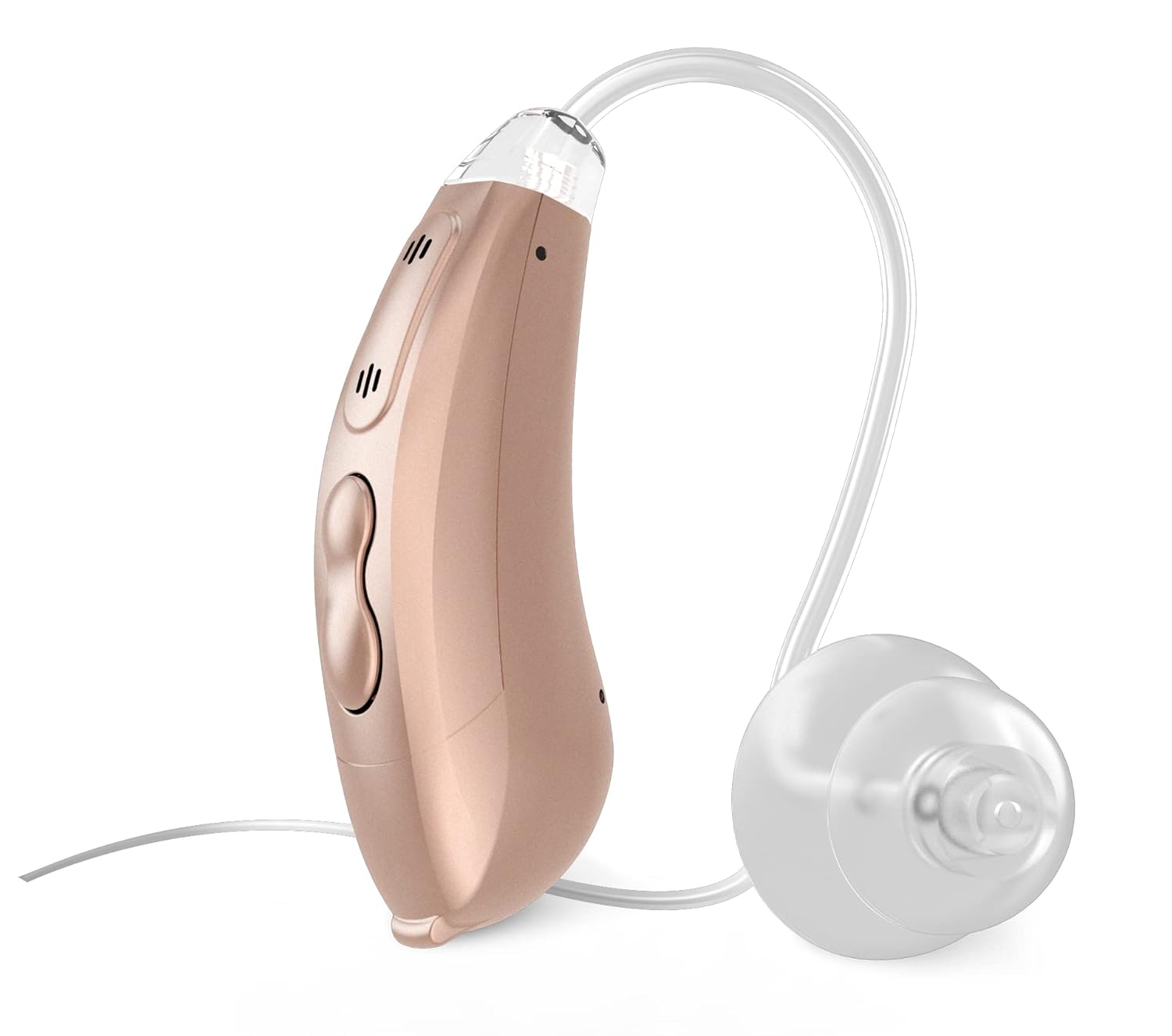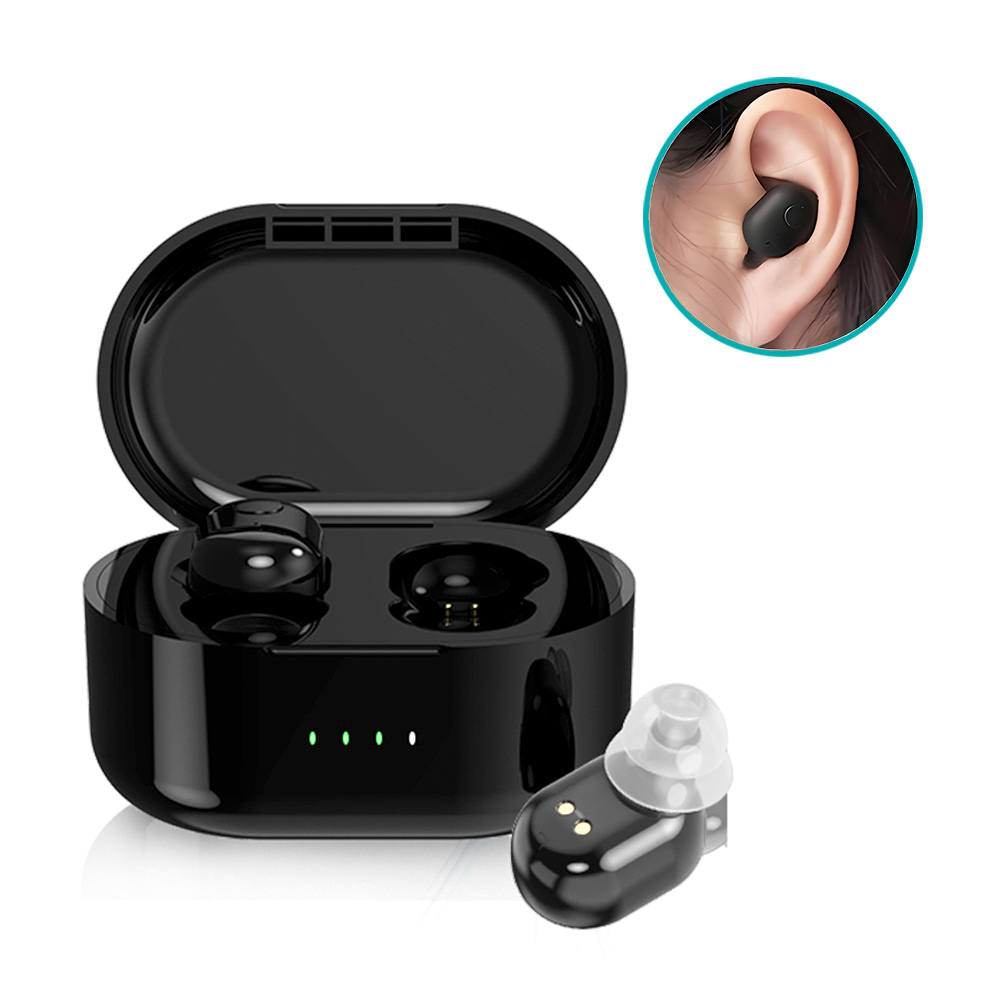Summer is a great time to check off tasks from your home improvement list. When the days are warm and long, it’s much more enjoyable to be outside, improving your surroundings, and enjoying a sense of accomplishment. Whether you take on just a few small upgrades or larger improvements this season, be sure to mind your hearing health and take appropriate precautions to save your ears from irreversible harm.
The safe listening threshold is 85 decibels (dB) – similar to the noise of heavy traffic or a blender.
Landscaping: Mowing the lawn, using leaf blowers, and operating chainsaws are all common tasks that can damage hearing. See pictures below of my most frequently used battery-powered tools and their corresponding decibel (dB) levels.
When testing my lawn mower, the noise averaged around 80 dB. This is not dangerous to my hearing, especially since I only use it for an hour. Gas powered and riding lawnmowers usually produce louder noise. My leaf-blower was more of a surprise, reading consistently over 95 dB! I can only use this tool for under 30 minutes without damaging my hearing – but it’s best to wear hearing protection to be safe. My chainsaw levels were between 98-100 dB, and I always wear earplugs while using it or my hearing could be permanently damaged within minutes.

Woodworking: Using power tools like saws, sanders, and drills can generate noise levels well above the safe listening threshold. Table saws, for example, can reach up to 100 dB which can cause hearing damage in only 15 minutes if not using hearing protection.
Tidying up: Pressure washing is a very satisfying task that can produce dramatic results, especially if you’re cleaning an older, high traffic area. Depending on whether the pressure washer is gas or electric impacts noise levels, as gas pressure washers can reach up to 100dB. Electric pressure washers don’t often go above the safe listening threshold, but using a decibel meter before you get started is a good idea just to be sure.
Home Renovation: Tasks such as demolition, hammering, and nail guns are particularly loud activities of larger building projects. Nail guns can produce noise levels up to 120 dB, similar to that of a firework, and being around hammering for extended periods of time can be dangerous.
These tasks can be done safely with easy modifications. You likely already wear appropriate clothing to cover your skin and eyes from flying or hazardous materials, so a quick addition of hearing protection will keep you even more safe and secure while working. Foam earplugs or earmuffs – and in some cases both when noise exceeds 100 dB for an extended period – should be secured before starting a task. And although it may be tempting, resist the use of a personal audio device while working with loud equipment, as you will likely turn the volume of the audio too high as you try to hear it over your tools.
Additional information about noise and hearing health can be found here. If you experience hearing difficulty or chronic ringing, buzzing, or hissing in your ears, see a licensed hearing care professional right away to determine your hearing abilities and discuss appropriate hearing loss treatment or hearing protection during your home projects: https://www.hearing.org/find-a-hearing-professional/
The above is the interpretation of Summer Project Checklist: When to Wear Hearing Protection provided by Chinese hearing aid supplier Shenrui Medical. Link https://www.sengdong.com/Blog/Summer-Project-Checklist-When-to-Wear-Hearing-Protection.html of this article is welcome to share and forward. For more hearing aid related information, please visit Blog or take a look at our Hearing aids products







